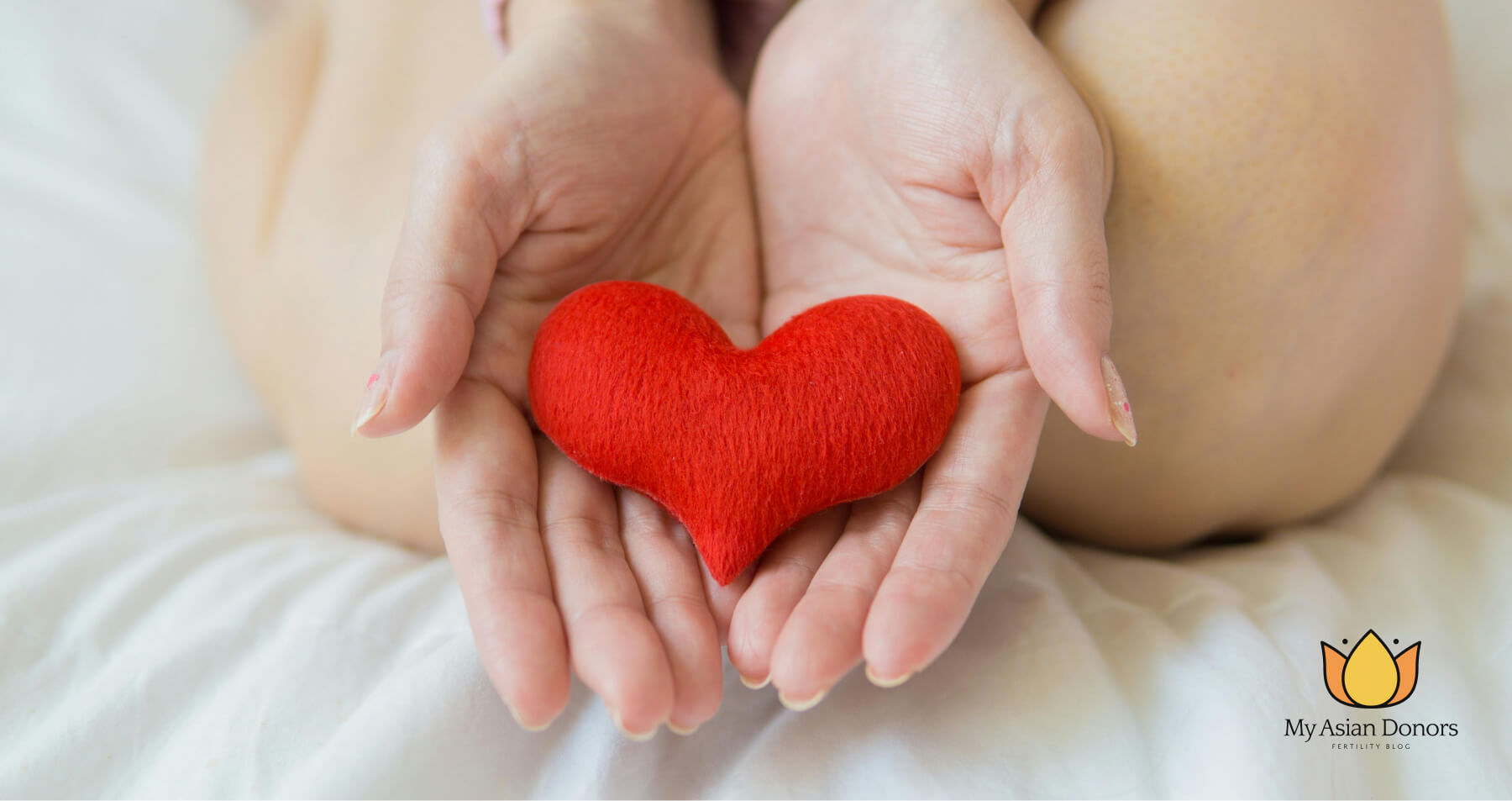Egg Donor Requirements: Are You Eligible to Become an Egg Donor?

To be eligible to become an egg donor, you typically need to meet specific requirements outlined by fertility clinics and organizations involved in the egg donation process. These criteria are carefully designed to ensure the safety and success of the egg donation process for both the donor and the recipient.
Table of Contents
Age
Egg donors are usually required to be between 21 and 31 years old, with some clinics having a cutoff age younger than 31. This age range is considered optimal for egg donation because women in this age group typically have a higher likelihood of producing healthy, viable eggs. Younger donors also tend to have a lower risk of pregnancy complications and genetic abnormalities, which are important considerations for the safety and success of the egg donation process.
Additionally, age can impact the quality and quantity of a woman's eggs, with fertility declining as women get older. By limiting the age range for egg donors, clinics can help ensure that recipients have the best possible chance of achieving a successful pregnancy with donated eggs.
It's important to note that these age requirements can vary depending on the clinic and the specific requirements of the recipients. Some clinics may have slightly different age criteria or may make exceptions based on individual circumstances. If you are interested in becoming an egg donor, it's a good idea to research different clinics and their eligibility criteria to find one that is the best fit for you. [1][2][5]
Physical Health
Donors must be physically healthy, with a BMI typically ranging from 19 to 29. A healthy BMI is important for ensuring the overall health and well-being of the donor, as well as the success of the egg donation process. Having a BMI within this range is generally associated with a lower risk of pregnancy complications and is considered optimal for egg quality and fertility.
Maintaining a healthy BMI is also important for the donor's own health and well-being. Being underweight or overweight can increase the risk of various health problems, such as hormonal imbalances, which can affect fertility. By requiring donors to have a BMI within a specific range, clinics can help ensure that donors are in good overall health and have the best possible chance of producing healthy, viable eggs.
It's important to note that BMI is just one factor that clinics consider when evaluating potential donors. Donors must also undergo a thorough medical evaluation, including tests to assess their overall health and fertility. [1][2][5]
Reproductive Health
Donors should have regular menstrual cycles, healthy reproductive organs with both ovaries, and a good ovarian reserve. Regular menstrual cycles are an indication of normal hormone levels and ovarian function, which are important for producing healthy eggs. Having both ovaries is necessary for the egg retrieval process, as eggs can only be retrieved from the ovaries. A good ovarian reserve, which refers to the number and quality of eggs in the ovaries, is also important for the success of the egg donation process.
To determine if a donor has a good ovarian reserve, clinics may perform tests such as an ultrasound to count the number of follicles in the ovaries and blood tests to measure hormone levels. These tests help ensure that the donor has an adequate number of healthy eggs for donation. [2][3]
Lifestyle Factors
Non-smoking status is a common requirement for egg donors, along with no history of alcoholism or drug use. These requirements are important for ensuring the health and safety of the donor, as well as the quality of the eggs being donated. Smoking, alcoholism, and drug use can have a negative impact on fertility and can increase the risk of pregnancy complications. By requiring donors to be non-smokers and to have no history of alcoholism or drug use, clinics can help ensure that donors are in good overall health and have the best possible chance of producing healthy, viable eggs.
It's important for donors to be honest about their lifestyle habits and medical history during the screening process. Providing accurate information allows clinics to make informed decisions about the eligibility of potential donors and helps ensure the safety and success of the egg donation process.
In addition to these requirements, donors may also be asked to refrain from certain medications and activities that could affect their fertility or the quality of their eggs. These guidelines are designed to protect the health and well-being of the donor and the recipient and to maximize the chances of a successful pregnancy. [2][3]
Medical History
Donors should not have a history of genetic or sexually transmittable diseases, and they should be psychologically healthy with no current use of psychoactive drugs. These requirements are important for ensuring the health and safety of both the donor and any potential offspring resulting from the donation.
A history of genetic diseases can increase the risk of passing on genetic disorders to offspring, so it's important for donors to undergo genetic testing to identify any potential risks. Similarly, sexually transmittable diseases can be passed on to offspring or to recipients, so donors are typically screened for these diseases as well.
Psychological health is also an important consideration, as the donation process can be emotionally challenging. Donors must undergo psychological screening to ensure they understand the emotional and psychological aspects of egg donation and are prepared for the potential emotional impact of the process. Additionally, the use of psychoactive drugs can affect both the donor's health and the quality of the eggs being donated, so donors are typically asked to refrain from using these drugs during the donation process. [1][3]
Birth Control
Donors should not be using certain forms of birth control like Depo-Provera injections, Mirena IUDs, or implants. These forms of birth control can interfere with the normal menstrual cycle and hormone levels, which can affect the timing and success of the egg donation process.
Depo-Provera injections, for example, are a form of hormonal birth control that can suppress ovulation and disrupt the menstrual cycle. Mirena IUDs and implants release hormones that can also affect ovulation and the menstrual cycle.
To ensure that donors have regular menstrual cycles and optimal hormone levels for egg donation, they are typically asked to stop using these forms of birth control several months before the donation process begins. This allows time for their menstrual cycles to return to normal and for hormone levels to stabilize. [1][2]
Willingness and Dependability
Egg donors are expected to be willing to take injections, dependable, mature, able to keep appointments, and understand the physical and emotional stress of the egg extraction process.
The egg donation process involves a series of injections of hormonal medications to stimulate the ovaries to produce multiple eggs. Donors must be willing to administer these injections themselves or have someone assist them.
Dependability is also important, as the egg donation process requires donors to attend multiple appointments for monitoring and the egg retrieval procedure itself. Donors must be able to keep these appointments to ensure the success of the donation process.
Maturity is another important characteristic for egg donors, as the donation process can be emotionally challenging. Donors must be able to handle the emotional aspects of egg donation, including the possibility of not becoming pregnant themselves and the potential emotional impact of knowing that their donated eggs are being used by someone else to start a family.
Understanding the physical and emotional stress of the egg extraction process is also important. The egg retrieval procedure is a minor surgical procedure that carries some risks, and donors must be prepared for the physical recovery process. Additionally, donors must be aware of the emotional impact of egg donation and be prepared for any emotional challenges that may arise during or after the donation process.
Overall, egg donors are expected to be committed, responsible, and empathetic individuals who understand the importance of their role in helping others achieve their dream of parenthood. If you are considering becoming an egg donor, it's important to carefully consider these expectations and ensure that you are prepared for the physical and emotional demands of the donation process. [1][2]
Sources:
- eggdonoramerica.com/become-egg-donor
- rmia.com/donor-eggs/should-you-become-an-egg-donor-a-short-checklist-of-requirements/
- rgiohio.com/become-an-egg-donor
- eggdonoramerica.com/become-egg-donor/the-donation-process
- pennmedicine.org/for-patients-and-visitors/find-a-program-or-service/penn-fertility-care/donor-egg-program/becoming-an-egg-donor



